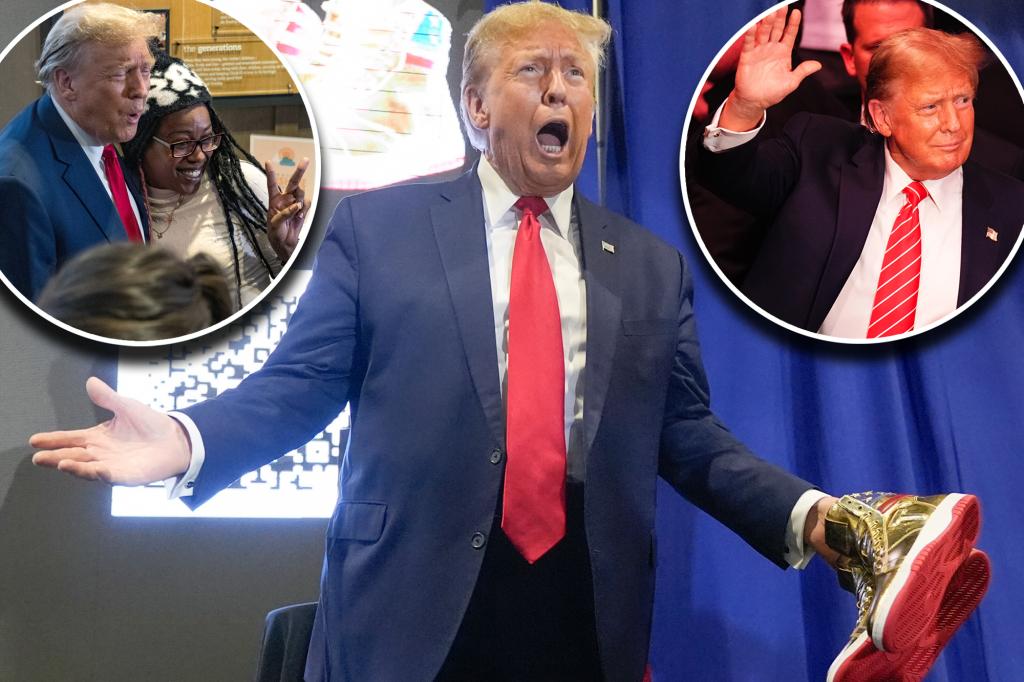Donald Trump’s campaign is aiming to attract Gen Z voters by using moments of humor and entertainment mixed with reminders of a struggling economy. While President Biden’s re-election strategy involves utilizing TikTok and social media influencers, Trump’s team believes that the former president himself is viral enough to spread his message. Trump’s meme-worthy moments, including visits to Chick-fil-A, MMA fights, and football games, are seen as authentic and shareable, appealing to Gen Z who consume political news on platforms like TikTok, Instagram, and YouTube. The strategist acknowledges that TikTok is off-limits due to national security concerns but mentions alternative streaming services as a way to reach voters.
Recent polls have shown a shift in young voters toward supporting Trump, with outrage over Biden’s handling of the economy and concerns about immigration swaying opinions. A CNN poll revealed that Trump is ahead of Biden by 11 percentage points among voters ages 18 to 34, a significant change from the results four years ago. The Trump campaign believes that a slight improvement in young voter support can impact the outcome of the election due to the demographic’s size. Emphasis is placed on messaging about the economy, which is the top issue for voters, particularly Gen Z who feel economically impacted by COVID-19.
The strategy also involves highlighting Biden’s gaffes and low energy levels compared to the viral moments created by Trump. The campaign claims that Biden is unrelatable and unlikeable to young people, while Trump’s actions are seen as relatable and likable. They argue that Biden’s policies have led to a more expensive, divided, and dangerous nation for young Americans, resulting in a decline in support from the demographic. In contrast, Trump is promoted as someone who can create a safe, prosperous, and free nation that enables young people to achieve their American Dream.
Republican strategists have mixed opinions about the effectiveness of Trump’s approach to reaching Gen Z voters. While some believe that Trump’s ability to command media attention and penetrate mainstream media can benefit the campaign, others raise concerns about the lack of a clear strategy. There are worries about the campaign shifting focus frequently and the absence of strong ground game activities. Despite these critiques, the campaign continues to push the message about the economy and leverage Trump’s charisma and viral moments to appeal to young voters.
There is a recognition that Gen Z voters may not have experienced a robust economy and therefore may not fully understand the potential impact of Trump’s policies. It is suggested that influencers should help articulate how life could improve under a Trump presidency. Additionally, the Harvard Kennedy School’s youth poll indicates a decrease in the number of Gen Z voters who are committed to voting in the upcoming election, showing a level of reluctance to support either candidate. Overall, the Trump campaign is banking on humor, entertainment, and economic messaging to sway Gen Z voters in November.














